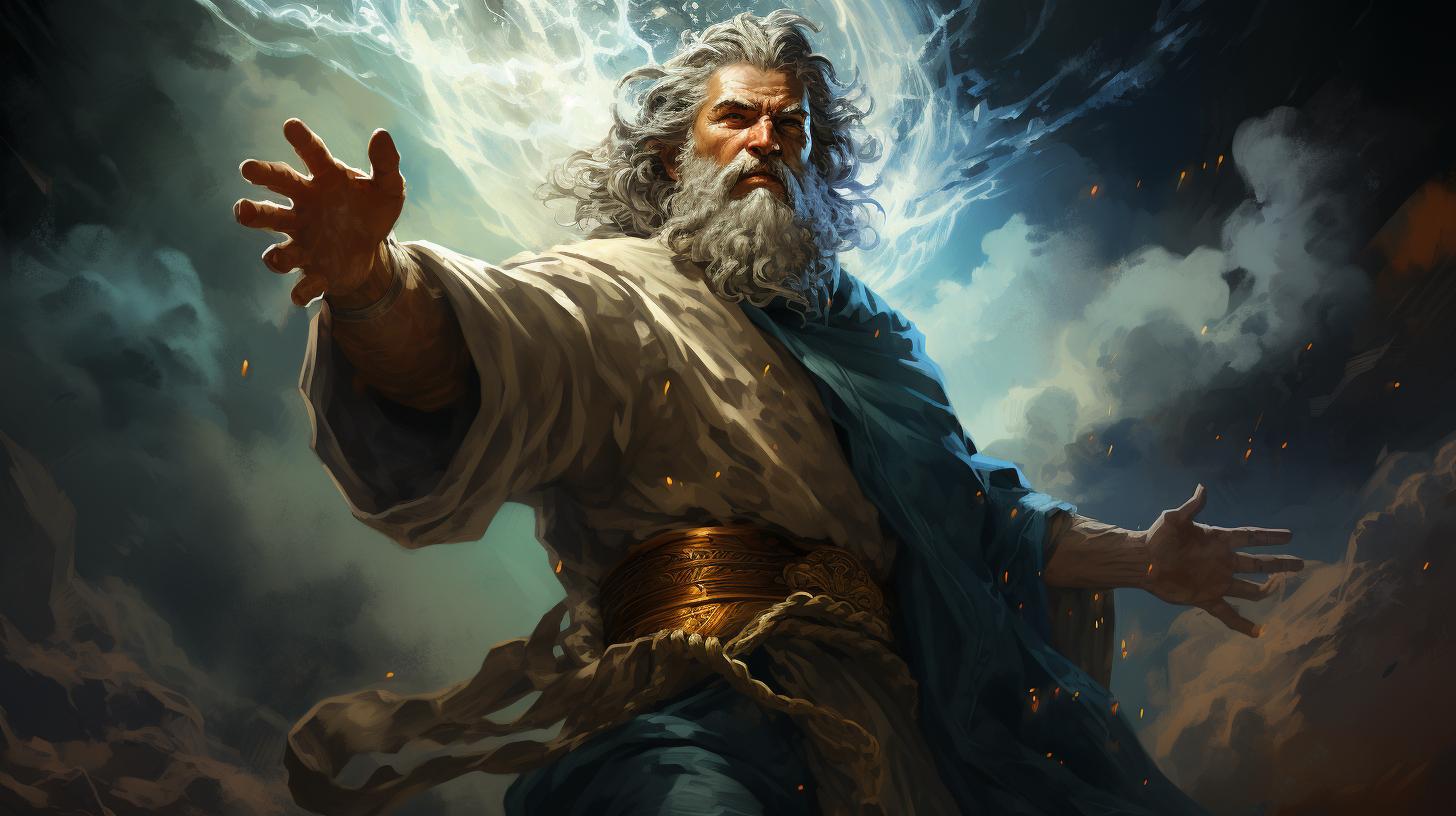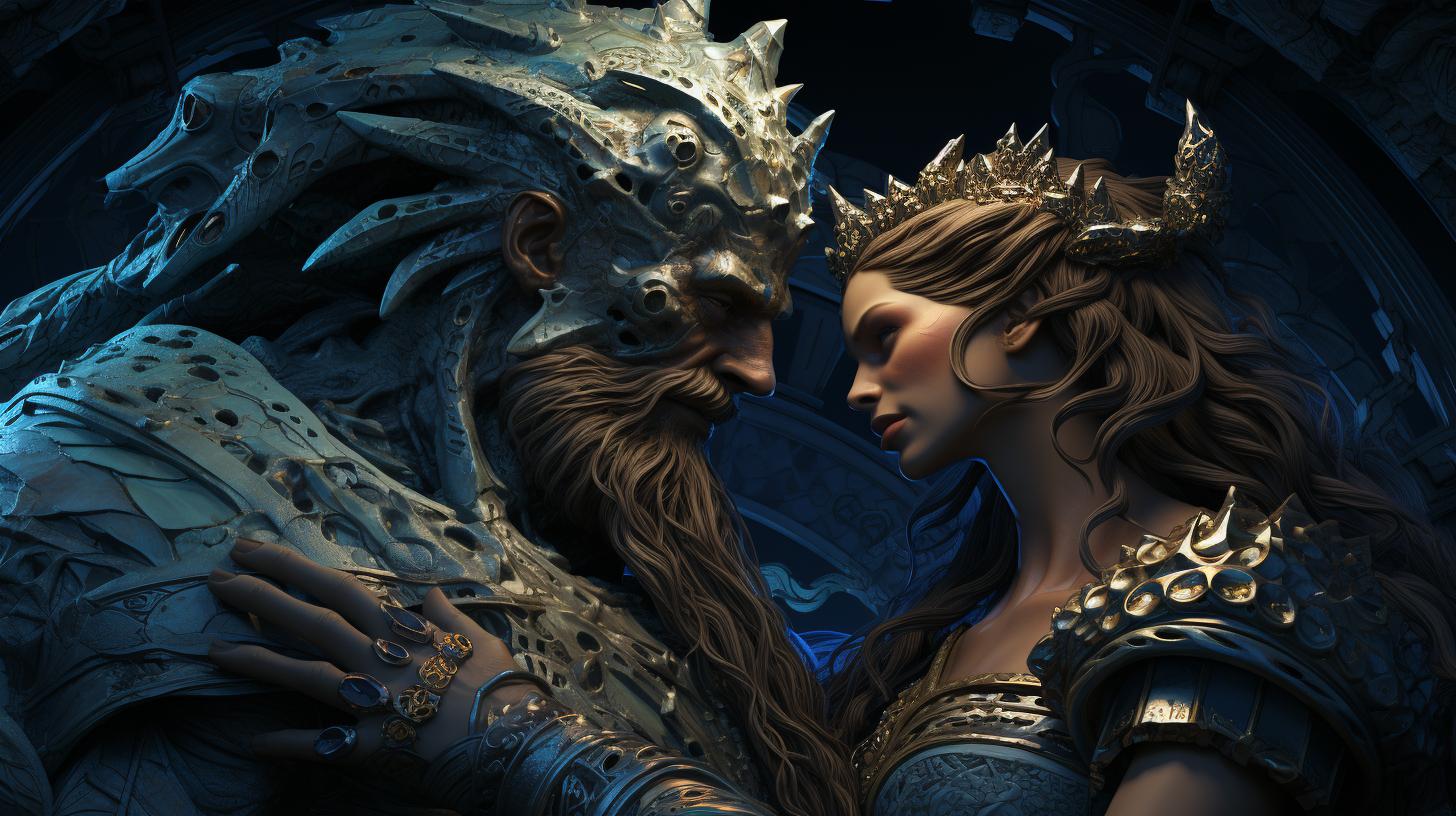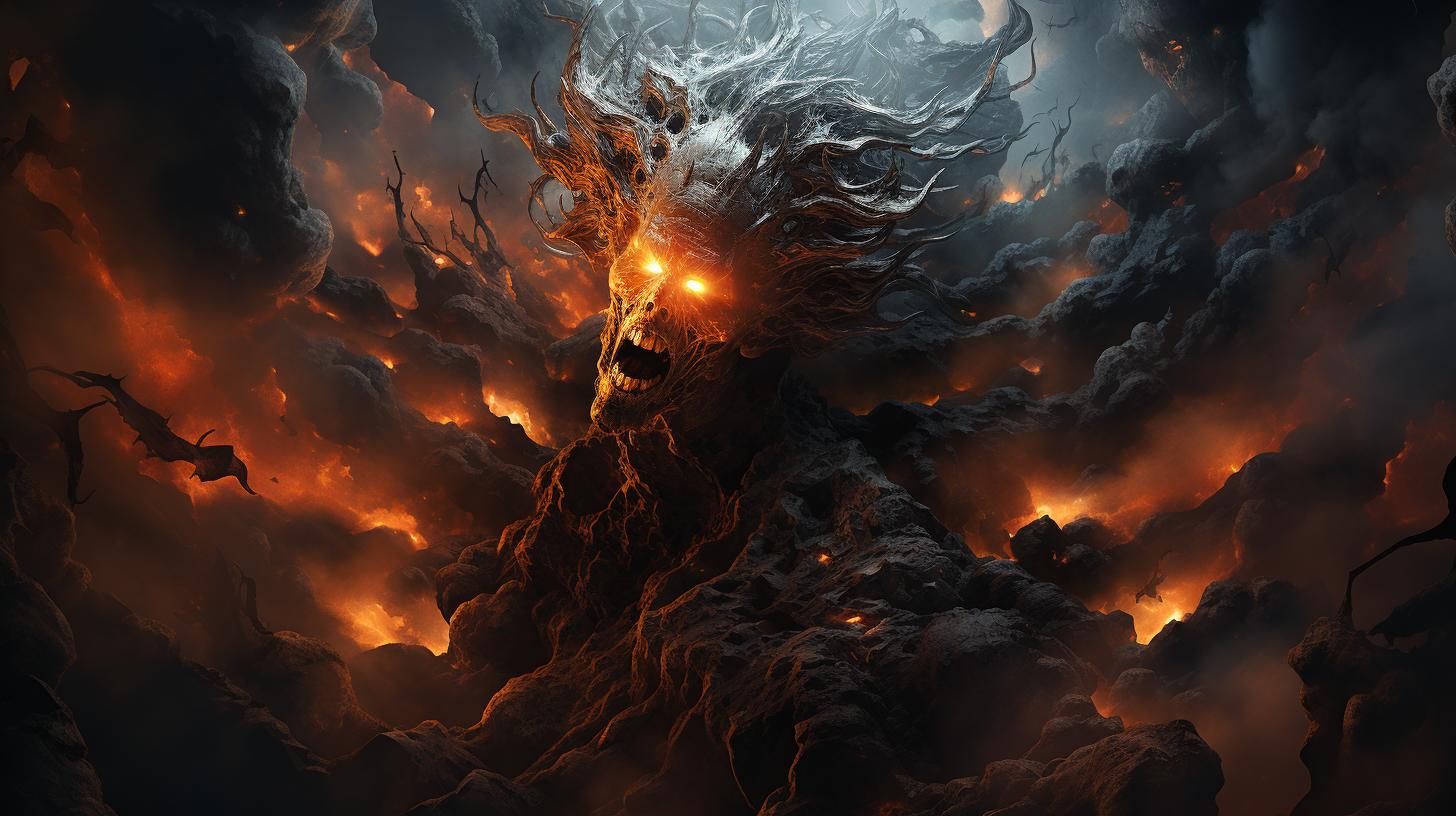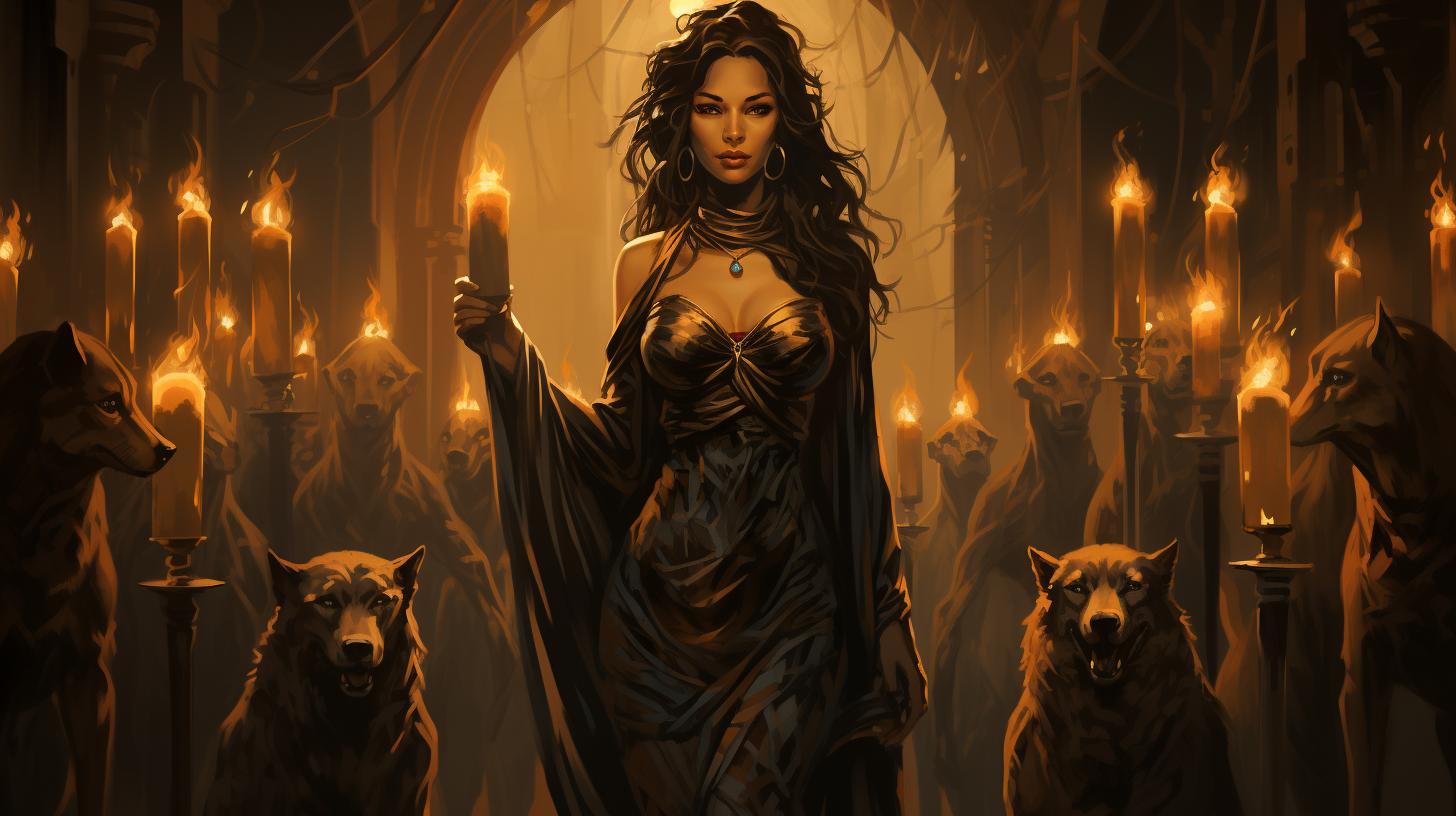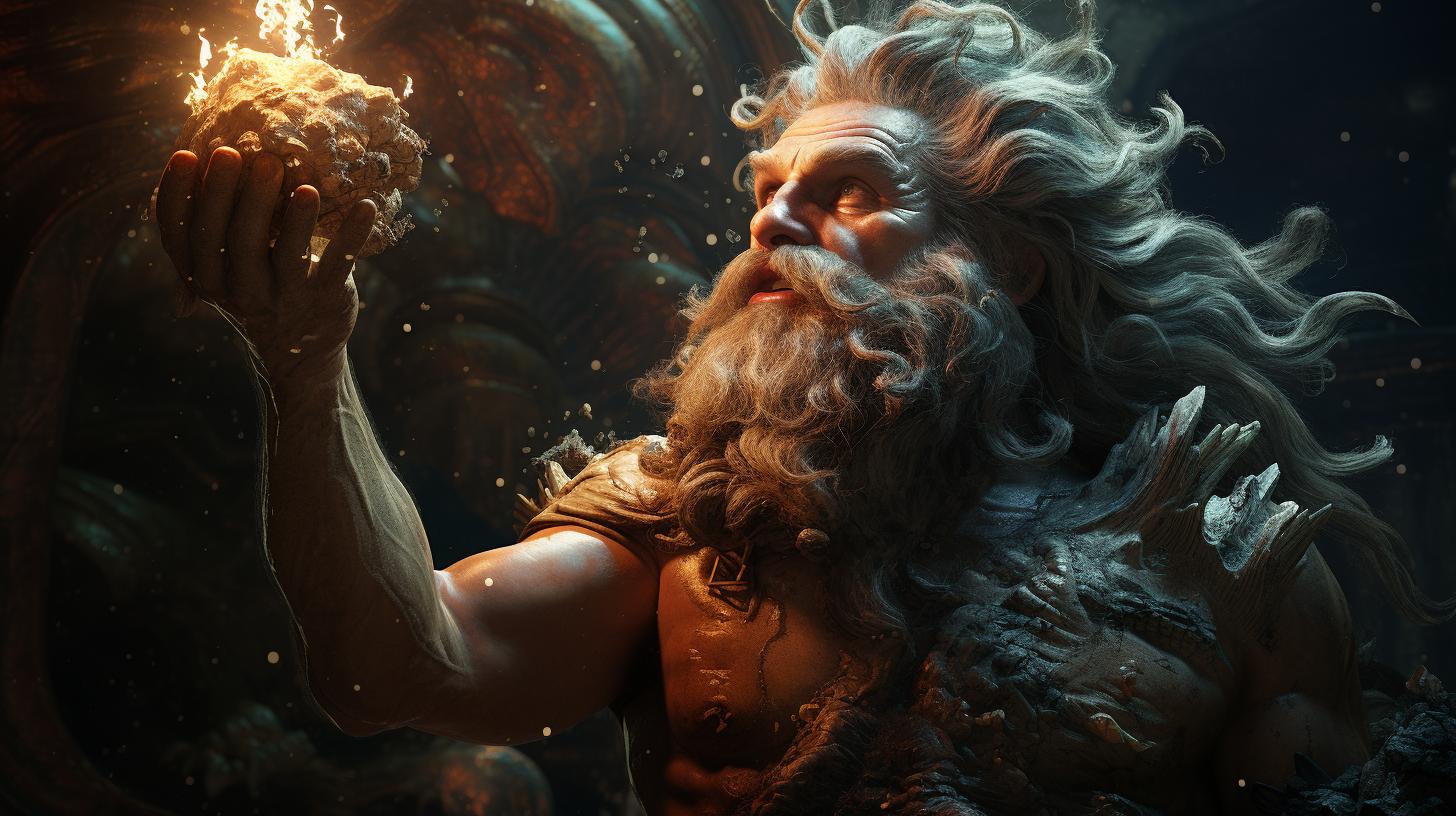Aeolus: The Mighty Greek God of Wind Revealed
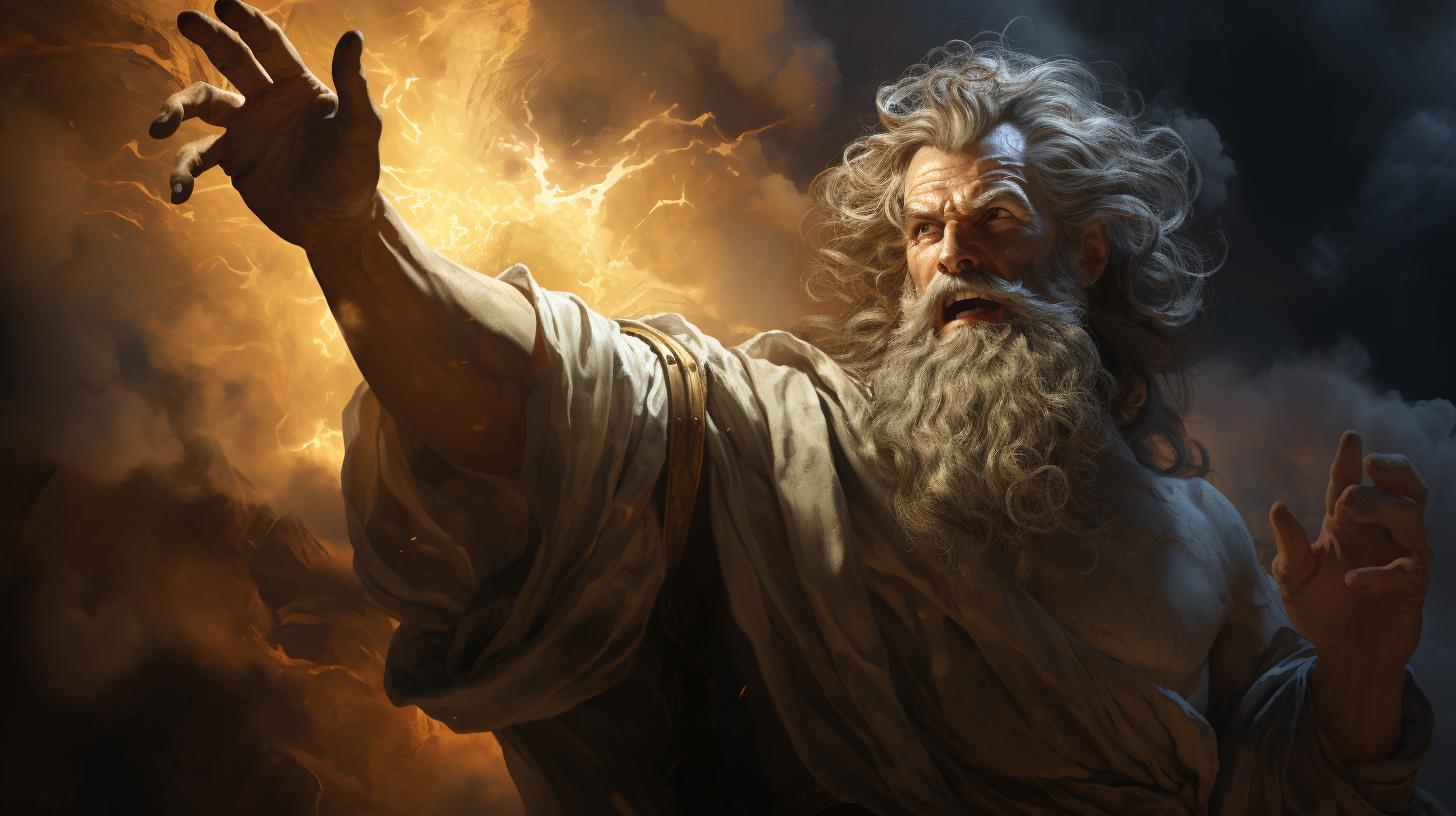
Aeolus, the Greek god of wind, was the guardian of the winds and ruler of the floating island of Aeolia. He controlled the Stormy Winds and only released them upon the orders of the most powerful gods.
Aeolus played a significant role in the epic journey of Odysseus, granting him a bag of winds for a safe return home. However, Odysseus’ companions’ greed led to their return to Aeolia.
In addition, Aeolus had six sons and six daughters, whom he married among themselves. This article explores Aeolus’ mythology, his relationship with Odysseus, his family, and connections to other wind gods.
Aeolus: The Greek God of Wind
Aeolus, the Greek god of wind, held a significant role in ancient Greek mythology. Revered as the guardian of the winds, Aeolus ruled over the floating island of Aeolia. Throughout the ages, Aeolus has captivated the imagination of both Greek and Roman cultures, leaving an indelible mark on their literature, art, and iconography.
Origins and Mythology of Aeolus
The origins of Aeolus trace back to the ancient Greek myths. He was believed to be the son of Hippotes, the god of rivers, and was later appointed as the divine caretaker of the winds.
Legend has it that Aeolus used his power to keep the Stormy Winds locked away on his island, only releasing them when commanded by the most powerful gods.
Aeolus in Greek and Roman Literature
Aeolus has made appearances in various Greek and Roman literary works.
In Homer’s epic poem, The Odyssey, Aeolus plays a pivotal role in assisting the hero, Odysseus, on his perilous journey back home. Additionally, Aeolus is mentioned in the works of other ancient writers, further solidifying his prominence in classical literature.
Depictions of Aeolus in Art and Iconography
Aeolus’ representation in art and iconography showcases his importance in ancient society. He is often depicted as a regal figure, standing tall and commanding the winds with authority. Sculptures, pottery, and mosaics feature Aeolus holding a staff or a conch shell, symbols of his control over the winds.
Aeolus’ Role as the Ruler of the Winds
Aeolus, the Greek god of wind, held immense power as the guardian of the winds and governed the mystical island of Aeolia. This section delves into the fascinating aspects of Aeolus’ role in controlling the winds and his influential position in Greek mythology.
Aeolus’ Domain: The Island of Aeolia
The island of Aeolia served as Aeolus’ domain, a place where he kept the tempestuous winds confined. Aeolia, a floating island, was shrouded in mystery and beauty, serving as a sanctuary for the winds under Aeolus’ watchful care.
Aeolus’ Relationship with the Winds
Aeolus possessed a unique relationship with the winds. As their custodian, he held the power to release or restrain their fury. Only by command from the mightiest gods would Aeolus unleash the destructive Stormy Winds, ensuring order and balance in the world.
The Power and Influence of Aeolus
Aeolus’ dominion over the winds granted him immense power and influence. His ability to control their might made him a revered figure among both gods and mortals. Aeolus’ mastery over the winds played a pivotal role in shaping the outcomes of voyages, battles, and natural phenomena.
Aeolus and Odysseus: A Fateful Encounter
The meeting between Aeolus and Odysseus, as described in Greek mythology, proved to be a pivotal and fateful encounter in the hero’s journey. This section delves into the key aspects of their interaction and the subsequent consequences that unfolded.
The Odyssey: Aeolus Helps Odysseus Homeward Bound
In Homer’s epic poem, The Odyssey, Aeolus plays a crucial role in aiding Odysseus’ return home. Recognizing the hero’s struggles and the favor bestowed upon him by the more powerful deities, Aeolus takes it upon himself to assist Odysseus in reaching Ithaca.
Within the confines of his island, Aeolus presents Odysseus with a bag containing the powerful winds. These winds are harnessed and controlled by Aeolus to ensure safe and swift passage for Odysseus and his crew.
Aeolus’ act of granting this precious gift demonstrates his goodwill towards the determined hero.
The Consequences of Odysseus’ Crew’s Actions
Tragically, the chain of events takes an unfortunate turn due to the actions of Odysseus’ crew. Consumed by greed and curiosity, they open the bag of winds, unleashing their full force upon the ship.
The unleashed winds propel the ship back to Aeolia, effectively nullifying the progress made on their journey home.
This turn of events showcases the significance of individual choices and the consequences they bear.
Odysseus’ crew succumbing to their weaknesses serves as a cautionary tale and adds a layer of complexity to the relationship between Aeolus and Odysseus.
Lessons Learned from Aeolus and Odysseus’ Journey
The intertwined story of Aeolus and Odysseus offers valuable lessons and insights.
It highlights the unpredictability of fate and the importance of humility and respect when interacting with higher powers. Odysseus’ journey serves as a reminder that even the favor of the gods can be jeopardized by humanity’s flaws.
- Maintaining gratitude and reverence towards divine assistance
- Avoiding succumbing to temptation and greed
- Understanding the impact of individual choices on one’s journey
The encounter between Aeolus and Odysseus showcases the delicate interplay between mortals and immortals, the consequences of actions, and the complex nature of divine assistance on the path to one’s destiny.
Family and Descendants of Aeolus
The family of Aeolus, the powerful Greek god of wind, played a significant role in both his mythology and legacy. Let’s explore Aeolus’ progeny, controversies surrounding his genealogy, and the lasting impact of his lineage in Greek mythology.
Aeolus’ Progeny: Six Sons and Six Daughters
Aeolus had twelve children, six sons, and six daughters, whom he gave in marriage to each other. While the specifics of their names and individual stories may differ across various sources, their existence remains consistent.
- The six sons of Aeolus inherited their father’s domain over the winds and became significant figures in Greek mythology.
- The six daughters of Aeolus played essential roles in their marriages, forming alliances and connections within the mythological world.
Controversies and Variations in Aeolus’ Genealogy
Like many mythological figures, Aeolus’ genealogy is not without controversy or variations.
Different sources may present slightly different family lineages, attributing him different parents or additional siblings. These variations add depth and complexity to Aeolus’ character, highlighting the diverse nature of mythological tales.
The Legacy of Aeolus in Mythology
Aeolus’ legacy extends beyond his immediate family. As the god of wind, he holds a prominent position within Greek mythology, influencing numerous other wind gods and deities. His stories and associations continue to captivate readers and scholars, showcasing the lasting impact of Aeolus in the rich tapestry of mythological lore.
Aeolus and Other Wind Gods in Greek Mythology
Comparisons with Other Wind Deities
In Greek mythology, Aeolus held a prominent position as the god of wind. However, he was not alone in this domain, as there were other wind deities that shared similar characteristics and powers.
Eurus, Boreas, Zephyrus, and Notus were some of the notable counterparts to Aeolus. Each wind god represented a specific direction and type of wind. Eurus was associated with the east wind, Boreas with the north wind, Zephyrus with the west wind, and Notus with the south wind.
While Aeolus was primarily associated with controlling and harnessing the winds, these other wind deities had their unique roles and attributes. Eurus was often connected with Autumn and the changing of seasons, Boreas was known for his fierceness and association with winter storms, Zephyrus was related to gentle breezes and the arrival of spring, and Notus represented the scorching hot winds of summer.
Despite their distinctions, all of these wind gods were regarded as powerful forces of nature and played significant roles in Greek mythology, influencing the weather patterns and the lives of mortals.
The Interplay of Aeolus and Zeus
Aeolus’ relationship with Zeus, the king of the gods, is a notable aspect of Greek mythology. While Aeolus had control over the winds, Zeus was the supreme ruler of the heavens and the earth.
Their dynamics often involved Aeolus carrying out Zeus’ commands and acting as his intermediary in matters related to the winds.
Zeus entrusted Aeolus with the responsibility of releasing or restraining the winds based on his will. This demonstrated a certain level of trust and respect between the two deities.
Aeolus’ obedience and loyalty to Zeus were crucial in maintaining the delicate balance of the natural elements and the smooth functioning of the world.
Aeolus’ Influence Across Different Mythological Traditions
Aeolus’ presence extended beyond Greek mythology and had an impact on other mythological traditions as well. In Roman mythology, Aeolus retained his role as the god of wind and was known by the same name.
The Romans adopted many Greek myths and deities but often gave them different names.
Furthermore, the concept of Aeolus and the winds was not limited to Greek and Roman mythology alone. Similar figures and ideas can be found in other cultures and civilizations throughout history.
The notion of a deity governing the winds and having the ability to unleash or restrain their power was a recurring theme in various mythological traditions.
This widespread influence showcases the universal fascination and recognition of the power and importance of the wind in shaping the natural world and the human experience.
Aeolus: Symbolism and Significance
Aeolus, the Greek god of wind, carries profound symbolism and holds significant significance in various aspects.
Explore the symbolism and enduring legacy associated with Aeolus as he represents more than just the power of the winds.
The Winds of Change: Aeolus as a Metaphor
Aeolus often serves as a metaphor for the transformative nature of wind and the changes it brings. Just as the winds can swiftly alter landscapes and environments, Aeolus symbolizes the transformative forces that shape our lives.
His representation as a deity who controls these winds highlights the unpredictable yet inevitable changes we face in our journey.
Connections to Natural Phenomena and Weather
Beyond the metaphoric significance, Aeolus also has a profound connection to natural phenomena and weather patterns. The winds, under his command, directly influence atmospheric conditions and contribute to the formation of storms and calm breezes alike.
Recognizing this link between Aeolus and weather events allows us to understand the interconnectedness between mythology and the natural world.
The Enduring Legacy of Aeolus in Modern Culture
While Aeolus originates from ancient Greek mythology, his influence and legacy still resonate in modern culture. References to Aeolus and the concept of wind gods can be found in various artistic expressions, literature, and even scientific terminology.
As we continue to explore the mysteries of wind and its impact on our lives, Aeolus serves as a timeless symbol of the raw power and uncontrollable nature of this elemental force.
See also, Notes, and References
- Related articles: If you’re interested in exploring more about Greek mythology and its deities, you may find the following articles helpful:
- “Zeus: The Mighty Greek God of Thunder”
- “Poseidon: The Enigmatic Greek God of the Sea”
- “Hera: The Powerful Greek Goddess of Marriage and Family”
- “Greek Mythology: A Comprehensive Guide to Ancient Gods and Heroes”
- Additional resources: For further reading on Aeolus and Greek mythology, consider the following:
- Books: “The Greek Myths” by Robert Graves, “D’Aulaires’ Book of Greek Myths” by Ingri d’Aulaire and Edgar Parin d’Aulaire
- Online sources: Encyclopedia Mythica, Theoi Greek Mythology
- Notes: Throughout history, Aeolus has been portrayed in various ways across different sources and interpretations of Greek mythology.
Some variations in genealogy and family relationships may exist.
- References: The information presented in this article has been compiled from reliable sources including ancient texts such as “The Odyssey” by Homer, scholarly works, and reputable online resources.
.

